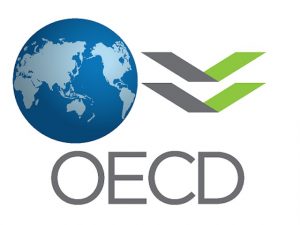India Joins OECD/G20 Inclusive Framework Tax Deal:

India and the majority of the members of OECD-G20 Inclusive Framework on Base Erosion and Profit Shifting (BEPS) have joined a new two-pillar plan to reform international taxation rules.
- The two-pillar plan – inclusive framework tax deal on Base Erosion and Profit Shifting (BEPS)- seeks to reform international tax rules and ensure that multinational enterprises pay their fair share wherever they operate.
- The signatories of the plan amounted to 130 countries and jurisdictions, representing more than 90% of global GDP.
- The new framework seeks to address the tax challenges arising from the digitalisation of economies.
- It also seeks to address concerns over cross-border profit shifting and bring in subject-to-tax rule to stop treaty shopping.
- Treaty shopping is an attempt by a person to indirectly access the benefits of a tax treaty between two countries without being a resident of any of those.
Two Pillar Plan:
- Pillar One:
- It will ensure a fairer distribution of profits and taxing rights among countries with respect to the largest MNEs, including digital companies.
- It would re-allocate some taxing rights over MNEs from their home countries to the markets where they have business activities and earn profits, regardless of whether firms have a physical presence there.
- According to OECD, more than USD 100 billion of profit are expected to be reallocated to market jurisdictions each year.
- Pillar Two:
- It is about minimum tax and subject-to-tax rules (All sources of income liable to tax without taking account of tax allowances).
- It seeks to put a minimum standard tax rate among countries through a global minimum corporate tax rate, currently proposed at 15%.
- This is expected to generate an additional USD 150 billion in tax revenues.
Base Erosion and Profit Shifting (BEPS):
- BEPS is a term used to describe tax planning strategies that exploit mismatches and gaps that exist between the tax rules of different jurisdictions.
- The BEPS initiative is an OECD initiative, approved by the G20, to identify ways of providing more standardised tax rules globally.
- OECD: It is an intergovernmental economic organisation, founded to stimulate economic progress and world trade.
- Most OECD members are high-income economies and are regarded as developed countries.
- G20: It is the leading international forum for economic, financial and political cooperation of large economies.
- India is a member of G20, however, not a member but a key partner of OECD




